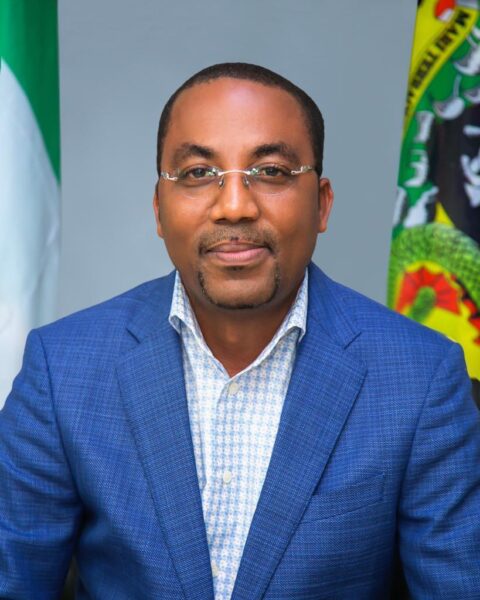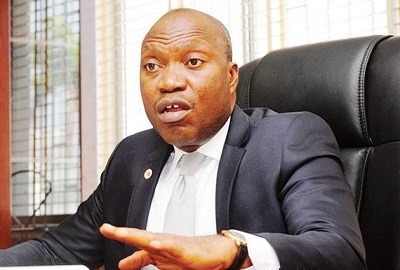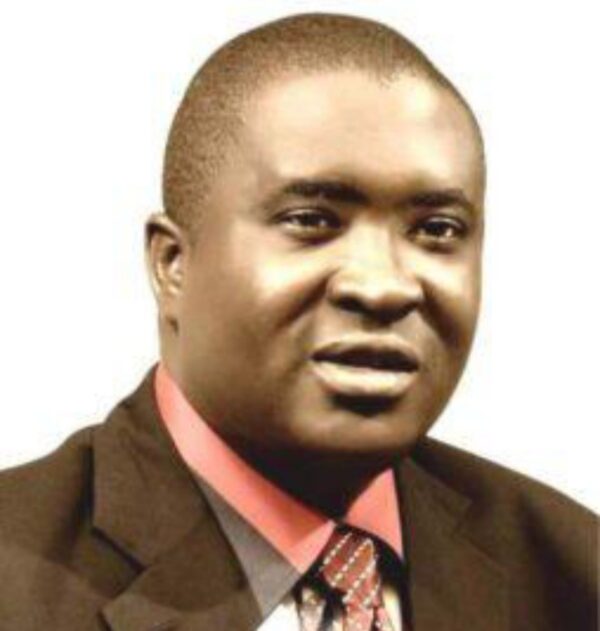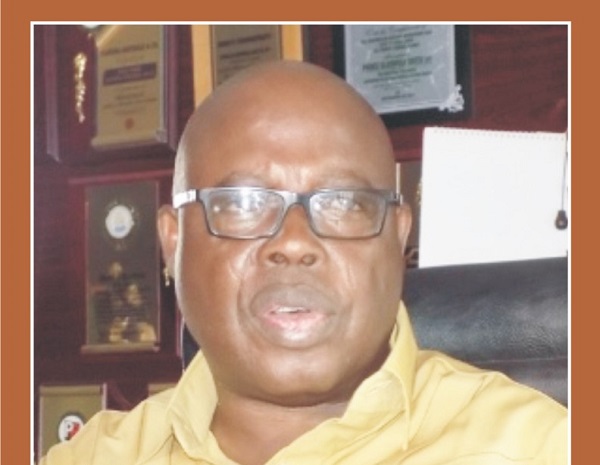What We Want from APC Government – Nweke

Chief Eugene Nweke is the National President of the National Association of Government Approved Freight Forwarders (NAGAFF); in this interview, Nweke creates a perspective for the government of the All Progressives Congress (APC) which will be inaugurated on 29th May, 2015. He clearly gives the areas that the government would be expected to beam their searchlight so that things can take a leap from what it currently is. Enjoy the interview.
There is a new government coming on board on May 29, this year, what do you expect from them in the maritime industry?
APC is a governing government; they are not rulers because that is what the president-elect has said. They are not coming on board to subjugate or throw overboard or jettison the existing policies of past administrations but what they want to do is to create a performance indicator of some of the policies to look at how well they have fared and to see whether they are complying and operating under the agreed norm and to see if some of the norms are created to favour the generality of the people or a certain section of the populace. There is nothing wrong for any new administration to look at that.
The government of Buhari believes in Public, Private Partnership and as much as they believe in that, it is saying with emphasis that the public which is the government’s interest will be properly supervised, and monitored. They should also make sure that the private sector should be involved in the economic emancipation and revival of the economy.
Whatever policy they meet on ground, they will consolidate and in doing so, where it requires that they should add impetus, in order for that very policy to be viable, they will do that.
As a critical stakeholder, where exactly do you think that the incoming government should focus its attention for efficiency to be achieved in the industry?
APC government should come on board with a proper understanding that the maritime sector revolves around two critical elements which are regulatory and service provision. So, if they understand the critical roles of service providers in supply chain as far as maritime is concerned, they should also consider the things needed to be injected into the regulatory agencies especially the ones that are punitive in nature in order to allow and encourage the movement of cargoes from the point of origin to the owner’s warehouse. In doing that, they should identify which of the agencies are revenue earners and position them and also make them accountable because over time, the issue of accountability has been an issue.
Customs is the only government agency we know within the sector that shows its revenue generation for a particular month even up to a year and if you ask them for the past ten years, they will show you. So, the APC government should ensure that NIMASA, SON, NAFDAC should make public their revenue generation so that the ones generating revenue internally will not also be treated as if they are not high revenue generators. The APC government should look at all these issues and see if they are over bloated like NIMASA laws and if they are over bloated, they should find a way of bringing fairness and equity.
So, with the understanding of the sector, they need to engage technocrats to occupy the echelons of the boards in the maritime sector in other to allow for the agencies to function and bring about not just a revamp but an efficient performance.
However, there are policies that will require serious attention. Auto policy is one of them and I know they will sit down and look at that policy again because the policy is not masses oriented. They will have to look at the policy of shipment of crude oil and export that has been confined under the international trade term of Free on Board (FOB), they should go back to Cost, Insurance and Freight (CIF)
Why do you think CIF is better than FOB?
Under FOB, our insurance firms are not patronized. So, you pick your cargo and say you are going to pay insurance from abroad. APC government should revitalize and ensure that steel sector is revamped because the steel sector will give birth to two critical sectors in the maritime supply chain and that has to do with automobile sector and ship building and ship repair sectors. These two critical sectors have been absent and that has led to no job creation in the maritime sector. If the steel industries are revamped, they will create a multiplier effect on the maritime and bring it back to bear, they should ensure that they leave no stone unturned here.
APC government should ensure that in consolidating and complementing what the Nigerian Shippers’ Council has done by situating and allocating container depot here and there and to ensure a service sector that will result to container yards and container stations service operation is being revived to be able to attract foreign investors and to bring in private people to come in and invest. This factor will strengthen our export because the reasons why people are running away from export because of distance and bad roads.
Recently, the management staff of the Nigerian Shippers’ Council visited your headquarters seeking your collaboration on how to make the port efficient. In what way are you relevant to help them achieve this objective?
A freight forwarder is a critical individual as long as the supply chain is concerned. He is the nucleus, he is pivotal, he is in the middle, he is the one that represents the shipper who is not known to anybody. He relates to the carrier, he relates to the regulatory agencies, he relates with finance and still ensures that in terms of logistics, planning, foreign exchange performance is known to him. At the end of the day, he draws up a road map and initiates the movement of cargo from the point of origin to the warehouse of the importer.
Nigerian Shippers’ Council is representing the interest of the shippers. You should know that the freight forwarders have ample information about the logistics operations. A freight forwarder is key as long as supply chain is concerned. So, when you hear Shippers’ Council saying they can’t achieve much without the freight forwarders, it is true. For instance, we are the first to collect revenue from our importers and pay to the Nigeria Customs Service. This means for compliance to be attained and customs to collect revenue, the customs needs to collaborate with the agents to ensure that there is reasonable bumper revenue collection.
Do you agree with the submission that failure to stem containers to ICDs is as a result of the support the agents gave to the Shippers’ Council to become the economic regulator?
Vessel stemming is the work of the customs, terminal operators and shipping lines. There are three people that can come into agreement for a vessel to be stemmed and do you know that in actual sense, most of these things we do are illegal. In shipping, the law says you should name your port and you now say Apapa port and here you are trying to send the same cargo to another place, you have breached that first contract and at the end of the day, you still meet the importer to pay you for transferring the cargoes to another place even when you do it without his consent. That is a breach of the contract of afrightment which the shipper entered with the carrier. It was a blunder by customs and NPA to license people as bonded terminal and when they were doing concession, they never put them into consideration.
In structuring concession, it was stated that once you have stored certain number of containers, the remaining ones should be stemmed to outer terminal which are the people that are bonded terminal owners that have not been integrated into the system. You know you are going to concession the port and these people have been there, you made them to go and borrow so much money from the bank and when concessioning, you never put them into considerations. So, this is where we have the problem, let us not shy away from the issue.
How do you see the relationship between the incoming government and the present management of NIMASA based on what transpired between them before the election where the APC accused NIMASA of using public fund to sponsor hate campaign against the Presidential flag bearer of the APC, General Buhari?
APC is not vindictive. More so, the issue was an allegation and not yet proven. These were issues that were insinuated just like any other insinuation. NIMASA is an agency formed by an Act of the parliament and whoever is made the Director General is not going to be there permanently, it is an appointment. You can be there today and tomorrow, you are out and another Nigerian will come in to serve. How come you are serving and making a case, are you a politician? No serving civil servant or DG of any parastatal should show partisanship as far as politics is concerned and I don’t think the DG of NIMASA would not understand where he is coming from.
What are we expecting from NAGAFF in the remaining part of 2015?
NAGAFF is not a revenue generating organization, it is an NGO. We will ever remain committed to ensuring that policies of government are favorable, we will continue to push our position papers to government concerning our stand on any government policy. Both this present administration and the one to be inaugurated on May, 29, will realize that we have our rights to express, address, advise and suggest to government what we think is best for the industry.
How are you preparing your members for the innovations that Shippers’ Council is bringing into the freight forwarding sector?
What we are doing right now is trying to position ourselves and the easiest way is going back to the four walls of classroom. That is, training and retraining. As I speak with you, in the next two to three weeks, we will be taking over thirty members to Ghana for training under the Redeemers’ University and CRFFN training programme. That is what we will be doing gradually, we have also prepared people for scholarship, we have also opened other avenues just to ensure that workshops, seminars and conferences are organized regularly for professionalism cannot be without education and training.
What is the sharing formula of the 35 percent of the practicing fee allotted to the associations?
I am not aware of any practicing fee, what I am aware of is the practitioners’ operations fee. We have not started collecting money. The sharing formula says associations are entitled to 35 percent and the idea is that the money should be channeled towards members’ welfare and training and anything short of that is not right.
Knowing that the associations don’t have the same membership strength, what is going to be the sharing formula?
You have answered it because you already said since we don’t have the same membership strength. The membership strength is the answer to the question. It is going to be shared according to the membership strength so that nobody will feel bad. If you say per member is N100 and your members are 200, then the amount for 200 people should be given to you.







